







Submission in response to consultation document
Temporary Migrant Worker E
26 November 2019
Franchise Association of New Zealand
PO Box 33 676, Takapuna, Auckland, 0740
E: [email address]
T: 0211 279 706
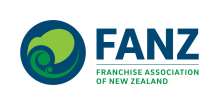
Page 2
Internal Labour Policy
Labour and Immigration Policy
Ministry of Business, Innovation and Employment
PO Box 1473
WELLINGTON 6140
[email address]
Submission by the Franchise Association of New Zealand Inc (FANZ) in response to Proposal
Introduction and Executive Summary
1.
FANZ is responding only to Proposal One of the consultation document, being the proposal to
potential y introduce into New Zealand law a statutory regime model ed on
in Australia and which can impose liability upon franchisors for
breaches of employment law.
2.
The reason for commenting only on Proposal One is that we do not have expertise relevant to
the other proposals.
3.
FANZ regards breaches by any employer of employment standards as abhorrent. FANZ
fundamental y supports the need to protect vulnerable migrant workers and indeed all workers
from exploitation. However we have serious concerns regarding the feasibility, effectiveness
and consequences of the current proposals. The proposed changes could have a highly
detrimental impact while not actual y solving the problem. This is due to a range of factors
including:
(a)
The proposals do not target the real issue underlying serious employment law breaches
observed both here and overseas.
(b)
The proposals appear to greatly over-estimate the degree to which franchisors are
actual y able to detect breaches by their franchisees of employment law.
(c)
The proposals also appear to assume that franchisors have tools with which to enforce
franchisee compliance in fact the only truly coercive tool available to franchisors (i.e.
termination of the franchise) would have serious detrimental effects upon employees.
(d)
The proposals would disadvantage responsible franchisors as against irresponsible
franchisors and also increase barriers to effective market competition.
(e)
The proposal wrongly assumes that regulation would impose little cost on responsible
franchisors whereas observations of experience in Australia reveal that the compliance
cost wil be very significant and prohibitive for many.
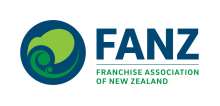
Page 3
(f)
The resources needed for additional compliance are more than many systems could
sustain and divert resources from areas of the business that benefit franchisees,
employees and consumers.
(g)
The proposal could disrupt and confuse employment relationships and conceivably
encourage other detrimental behaviours from bad franchisee employers.
(h)
The proposal is contrary to long-established and central principles of business law.
4.
FANZ therefore opposes the proposed regulation.
5.
FANZ submits that if legislation were to be introduced, the regulator would need to give
considerable guidance to the franchise sector, to reduce uncertainty and the associated
compliance cost for franchisors hopeful y reducing the main detrimental consequences
identified below. We have suggestions to help address perceived problems and ensure any
. We would be happy to provide details. However we reiterate that
any such regulation and the surrounding guidance for industry would need considerable further
work and the ful effect of such regulation is stil to be realised, even overseas
about the regulatory risk, described below, explain our current position that the perceived benefits
of such regulation do not outweigh the detriment it is likely to cause. FANZ supports greater
resourcing of the Labour Inspectorate and increased use of the tools already available to the
regulator and improving those tools where necessary.
6.
We would like to meet with the Ministry to discuss these issues further.
Answer to Question 1A
Do you agree that people with significant control or influence over an employer should be
7.
No, for the variety of reasons set out below.
Franchisees are genuinely independent parties and the premise (that they are not) is not
valid.
8.
Franchisees are about being in your own business but not on your own they are not subsidiaries.
If you start treating them as subsidiaries as MBIE appears to be proposing then franchisors
may as wel set up their own stores. But this is not something most franchisors are able to
resource certainly not on a wide scale so would seriously limit new venture, competition and
employment creation.
9.
If we draw an analogy that has the franchisor as parent and the franchisees as children, and
decide that it is somehow a fair solution to go to the parents whenever something goes wrong
with the children, this risks discarding the principle that each act independently. This
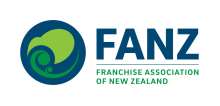
Page 4
independence is a very important principle and foundation of commercial law and business. If
we confuse that, we risk getting al sorts of unforeseen and confused issues down the track.
Proposal one does not address the real issue.
10.
The real issue in migrant exploitation is rogue operators who are wil ing to breach the law. No
honest business wil exploit its workers and no honest franchisor will knowingly al ow this to
happen, even without joint employer liability. We do not express a view on why rogue operators
deliberately exploit migrant workers. However, Senior MBIE officials have been quoted as stating
that:
Senior MBIE officials believe any sector of the economy that becomes dominated, or
'captured', by a single ethnic group becomes a risk because rogue operators wil exploit
1
We do not see how Proposal One and the massive compliance burden described below will solve
this issue.
11.
We cannot think of any franchised business that is set up in the knowledge it could lead to worker
exploitation. We think it is wrong to impose significant costs onto franchise systems and incur
regulatory risk when the real issue is a relatively smal number of rogue people who are
deliberately breaking the law. As we say later, we expect the regulatory benefit of Proposal One
would be far exceeded by the cost.
Franchisors have limited control over franchisees in practice.
12.
The proposals
While it is true that franchisors can impose many and detailed obligations upon their franchisees,
one must look beyond the mere fact of the obligations to how they can be enforced in practice.
13.
Until very recently, New Zealand law did not support the imposition of penalties for breach of
contract. As a result, franchisors do not have penalty provisions (fines, etc) in their franchise
agreements. This state of affairs can be expected to continue for many years, due to the time it
takes current agreements to expire and due to a general reluctance by lawyers to craft provisions
while there is no body of case law to help define what is and is not lawful under the new regime.
14.
Without being able to impose and cost-effectively enforce penalties for breach of contract, a
franchisor must either expend limited resources to try to persuade a franchisee to comply (which
ultimately requires the cooperation of the franchisee) or terminate the franchise.
15.
Many franchisors do not have the resources to take over and operate outlets of terminated
franchisees or the resources to pay for the outlet until it can be sold. Finding suitable new
1 Stuff 6 October 2019: https://www.stuff.co.nz/business/116300102/how-the-liquor-store-industry-is-riddled-
with-worker-exploitation
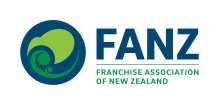
Page 5
franchisees to take over terminated outlets is also a persistent problem for most franchisors.
Therefore the result of terminating a franchise is very often the closure of that business. This
causes financial and brand damage to the franchisor (and, indirectly, to other innocent
franchisees) and many years of lost income. Furthermore, closing a business puts all the
employees out of work the opposite of what this legislation is looking to do.
16.
For the above reasons the requirement for franchisors to take responsibility to ensure their
franchisees comply with employment law faces some inherent difficulties. Al many franchisors
will be able to do to prevent ongoing non-compliance is terminate a franchisee with the likely
result that al employees wil be made redundant.
17.
It would be unjust to penalise franchisors for non-compliance by their franchisees when
franchisors have such limited ability to enforce compliance and the only option available to them
has such significant consequences (including for the employees).
18.
Of course, allowing a franchisee to continue breaching employment obligations is also an
unacceptable outcome and not one that, in our view, any decent franchisor would knowingly
allow to continue. However it is our view that compliance is best enforced by the regulator, who
has a wider array of investigative and punitive powers at its disposal so is better able to compel
compliance without also ending the employment of all the employees concerned.
Franchisors have limited ability to detect non-compliance
19.
The proposals also appear to rely upon an incorrect assumption that franchisors can readily
detect either accidental or intentional non-compliance by franchisees. The example given in
Annexure D of the consultation document notes that the franchisor has a contractual ability to
assumption that franchisors are regularly conducting audits.
20.
Due to the resourcing audits require, audits are highly infrequent occurring only when a
franchisor already has good reason to suspect that a particular franchisee is non-compliant.
Therefore they are not a tool that detects non-compliance. They serve only to confirm the
existence (or otherwise) of something already suspected.
21.
In most franchises, it is expected that the franchisee wil typically assume responsibility for al
day-to-day operational matters, such as employing staff and managing those employment
relationships, with the franchisor taking responsibility for developing branding, systems, bulk
purchasing, national marketing and franchise system support. The parties do not work side by
side, in the same office, or even in a similar geographical location, so the franchisor has no way
of regularly
any conduct by a franchisee in connection with an employment
relationship.
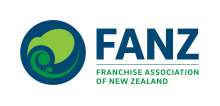
Page 6
Lack of contractual powers to discharge obligations
22.
If legislation is enacted, franchisors wil not be able to fully comply unless they have sufficient
contractual powers of investigation and access to employees of the franchisees. The only source
of those powers is the franchise agreement. Where those powers do not already exist, franchisors
could find themselves in the invidious position of being subject to statutory obligations where they
lack the necessary contractual powers to discharge.
23.
It is important to draw a distinction between the extent to which a franchisor has any actual control
and the extent to which they have potential control. Most
franchise agreements would give a franchisor the ability to exercise some generic level of control
over franchisee workplace compliance (common provisions include the requirement for
franchisees to comply with employment laws), but we suggest it is a significant stretch to expect
franchisors to essentially monitor and manage the detail of workplace compliance using those
general provisions, having regard to the expectations of the franchisor and the franchisee when
they entered into the franchise agreement. We also point to the comments made earlier with
(paragraphs 12 to
14).
24.
In order to be able to conduct a detailed monitoring of franchisee compliance in regard to
employment standards, franchisors would need to ensure they have the necessary investigative
powers to do so under their franchise agreement. Franchise agreements wil general y contain
provisions enabling franchisors to conduct an audit. However, as discussed above, the audit
power is rarely used due to the financial and time commitment involved and is therefore ineffective
as a way of detecting non-compliance.
25.
Whilst in theory it would be possible to put extensive powers of investigation into a franchise
agreement fol owing a renewal of the franchise, even with these powers there is very little a
franchisor can do when a franchisee simply refuses to comply. Where the relationship has
become tense, it is common for franchisees to simply refuse access to documentation or to
deliberately conceal the truth about the information that does exist. If a franchisee already knows
they are in breach of employment standards, they are hardly going to cooperate in providing
information which confirms that breach to the franchisor. Indeed, they are more likely to
deliberately conceal it. This appears to significantly hinder the practicality of the proposed
regulation. This is quite different from a body such as the Labour Inspectorate who can compel
the provision of relevant information.
Rogue franchisors unlikely to be caught by Proposal One
26.
We expect that franchisors that are likely to be recklessly in business with rogue franchisee
employers are likely to be cut price groups that operate with few rules and little involvement with
their franchisees, at the bottom end of the market. Those franchisors may not have the sufficient
degree of control to be subject to the new laws. Hence those most needing to be covered by the
regulation, may not be.
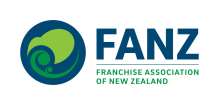
Page 7
Answer to Question 1B
What would be the advantages of making people with significant control or influence over an
employer, responsible for that employer s breaches of minimum employment standards?
27.
In the franchising context:
(a)
A perception that it wil be easier to make franchisors liable for franchisee breaches of
employment law.
(b)
Potential deterrent effect.
(c)
Responsible franchisors will put considerable effort into ensuring compliance throughout
their franchise system. However:
(i)
Responsible franchisors wil already be taking steps to ensure compliance, to the
extent they can.
(i )
Irresponsible franchisors (being those who the regulations would real y be
targeting) may pay little attention to the regulation or may structure their business
to avoid having sufficient control as to fall under the regulation.
Answer to Question 1C
What would be the disadvantages of making people with significant control or influence over an
employer, resp
Diversion of resources that would otherwise support employers
28.
Anecdotally, as this is al that has been possible in the limited time for submissions, FANZ is
hearing reports that franchisors in Australia are diverting a very significant proportion (up to 50%)
for and prevent non-compliance with applicable laws.
29.
This compliance focus driven by regulation - diverts enormous resources away from productive
activities that support franchisee (employer) profitability and resilience and increase the market
competitiveness of the entire franchise network, into mostly unproductive activities (ie monitoring
for non-
30.
We discuss the financial impact of such regulation further below. In that discussion, it must be
remembered that money spent on ensuring compliance is money that cannot be spent on
supporting franchisee employers to grow their businesses or developing and improving the
franchise system so as to increase its overall competitiveness in the market and to improve the
products and services it offers to consumers.
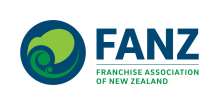
Page 8
Disadvantaging responsible franchisors / Reducing competition
31.
The practical outcome is also that the most responsible franchisors, who invest heavily to ensure
franchisee compliance with a wide array of regulatory responsibilities, are unfairly disadvantaged
compared with less responsible franchisors who invest less and are therefore able to compete for
potential franchisees and customers by charging less. Similarly, start-up franchisors attempting
to bring more competition to a market are disadvantaged, as they have fewer resources than
larger incumbent systems.
32.
Although the Australian regulations to some extent allow a Court to recognise the resource
differential between franchisors, what the regulations actually require in practice is sufficiently
uncertain that the investment franchisors make to try to ensure compliance is disproportionate to
the actual benefit achieved (particularly when considering the consequent reduction in support
available to all franchisees/employers in the network).
Confusing the employment relationship
33.
Introducing joint liability legislation could also have unintended consequences for employees. An
employee of a franchisee does not report to or have any employment responsibility to a franchisor.
This legislation could create the potential for confusion in the employment relationship where an
employee is caught between the competing demands of their employer and those of the (joint
employer) franchisor.
34.
Employees of the franchisee are recruited directly by the franchisee and the franchisor has
virtually no involvement with staff of the franchisee. This aspect of operating a franchise is
regarded as being within the domain and control of the franchisee. The franchisor does not give
The franchisor
does not dictate to the franchisee how it should manage its staff or deal with issues of
performance. The franchisor does not interfere in employment relationships between the
racts such as lease
agreements that the franchisee may have entered into. Those aspects are part and parcel of
what the franchisee assumes responsibility for in the relationship.
35.
If franchisors were exposed to legal liability for breaches of employment standards including (for
example) breaches by franchisees of section 4 of the Employment Relations Act, this wil
inevitably lead to interference by the franchisor in the contractual relationship between franchisee
and employee. If there is to be joint liability for breach of employment standards then the
franchisor must rightful y have the ability to step into the shoes of the employer when dealing with
This wil put employees in the vulnerable, difficult and uncertain
position of having to potential y answer to two employers, one being the employer who employs
employment contract, but who has had nothing to do with employing them or dealing with them
on a day-to-day basis. It also raises the question of privacy. Many employees of franchisees do
not want to have any direct involvement with the franchisor; they prefer to deal only with the
person they perceive as their employer. Some would not even feel comfortable about their
employment agreements being provided to the franchisor, much less other information about
them which is personal information under the Privacy Act.
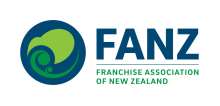
Page 9
36.
We suggest this wil introduce a very messy and complicated level of uncertainty into the
employment relationship. In particular, for the employee. How is the employee meant to know
employer was likely to breach the law and
to prevent that? (These
references being to key aspects of the Australian regulation.) Potential y employees could bring
personal grievances against franchisors who, quite fairly and understandably, had nothing to do
with the alleged breach. We would expect an increase in the number of personal grievances
claims, if the Australian position is adopted allowing employees to bring civil claims against
franchisors. We are already aware of employment advocates and lawyers who work on a no-win
no-fee basis bringing dubious claims against employers in the knowledge that it will be cheaper
for the employer to settle the claim than to fight it. This is directly contrary to the interests of
justice but is already a common feature of the employment environment. It will be perceived that
franchisors have deep pockets and are concerned to settle claims to keep their brand out of the
news.
Potential abuse by franchisees
37.
Under a joint employer liability regime, franchisees could in theory cease paying their staff in the
hope that in insolvency situation, ultimately employees will have the ability to bring wages claims
against their franchisors. The joint employer regime could indirectly encourage insolvent trading
by franchisees.
38.
A further issue is that the directors and proprietors of many franchisee entities are general y also
employed under employment contracts. It is not uncommon for franchisee entities to also employ
family members.
franchisee and franchisor, the franchisee entity could cease paying the wages of employees
closely related to the franchisee/employer such that they may be able to bring claims or
complaints against the franchisor
the franchisor). Again, we believe this is an area which could be open to abuse.
Interference with foundational principles of law
39.
The proposal involves fundamental changes to law that should be widely consulted. Any such
regulation would cut across long standing laws such as the doctrine of separate legal personality,
limited liability of companies and a range of other laws. Because setting such a precedent could
have far wider effects than
it should be open
to much wider consultation than a proposal to protect migrant workers.
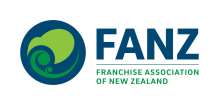
Page 10
Answer to Question 1D
What would be the costs of making people with significant control or influence over an employer,
responsible for that employer s minimum breaches of employment standards?
Franchisors are small businesses with limited resources
40.
The vast majority of franchisors are small businesses (employing less than 20 people). It is not
the case in New Zealand that franchisors are primarily big businesses as is sometimes
suggested.
41.
The smal size of most participants is an important dynamic of franchising in New Zealand, which
in itself is a smal and geographically dispersed market. As such, franchisors and franchisees,
like any other smal business, are particularly vulnerable to regulatory overreach and compliance
cost. Most will not have sufficient resources or income - to take on responsibility for ensuring
franchisee compliance with employment standards. Few franchisors wil even have specialist HR
resource. This is because they typical y have smal numbers of employees, and are smal
businesses.
42.
We estimate that franchisors will, in order to ensure they are compliant with any new legislation,
not only incur cost in ensuring their existing systems are compliant but wil also need to employ
additional employment resource to ensure that ongoing compliance is monitored. We understand
this has been the experience overseas. The impact of this regulation wil therefore be significant
and ongoing.
43.
As part of a regulatory impact assessment, we would have thought the goal would be to identify
the cause of the issue and then tailor responses to address the cause in a way that does not
cause substantial cost. Here the costs must outweigh the benefits as a lot of honest businesses
will be saddled with considerable costs and responsibility to try to address what seems to be a
narrow issue. The proposal appears to reflect highly unrealistic assumptions about both the
resources available to New Zealand franchisors, and the economic effect of such regulation. We
hope that a regulatory impact assessment will consider these matters.
Difficulties obtaining appropriate staff
44.
Franchisors often provide some form of in-field business support to their franchisees. The nature
and level of support varies greatly between systems and is inextricably linked to the operational
and financial structure upon which the entire franchise system is based. This means that the
scope of support (and monitoring) the franchisor is able to provide cannot be easily expanded.
tatives is difficult for most
franchise systems. The nature of the role requires a broad range of highly specialised skil s. The
types of people who are best suited to such roles are in demand as senior managers and are also
likely to be attracted to owning their own business. Recuiting and retaining such people in field
support roles is highly beneficial to franchisees but is difficult for franchisors. It is made
increasingly difficult as extra areas of responsibility and expertise are added to the role. If new
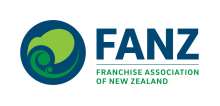
Page 11
head office) to be more deeply involved in monitoring franchisee compliance with employment
law, it wil add another layer of complexity to postitions that are already hard to fill. Arguably,
franchisors would be better to have one person with specialist employment law and investigative
skil s to deal with the whole network but very few franchisors could afford to fund that position.
Even in
continue to be a risk of undetected non-compliance. Even conducting limited audits on a subset
of franchisees (presumably selected by a risk factor assessment) would be prohibitively
expensive for a great many franchisors and they would risk being accused of discriminatory
10 above).
Prohibitive costs
45.
The introduction of joint employer liability in the franchising sector will involve for many franchise
systems a prohibitive level of compliance cost. It goes without saying that the cost of compliance
is a significant deterrent to the growth of business.
46.
As wel as the significant business disruption cost, and based on anecdotal accounts, there wil
be costs of:
(a)
ensuring that al systems are compliant and that there is a full compliance system.
Estimated one-off cost up to $200,000 depending on the size of the system (including
internal and external costs).
(b)
ensuring that systems are in place with additional employment resource being brought on
board to monitor compliance. Estimated cost $50,000-$200,000 per annum, depending
on the size of the system.
Costs cannot necessarily be passed on
47.
The discussion paper states
costs could be passed on to those employers and consumers
businesses that already have good practices would likely experience no additional costs
[emphasis added]. Both of these statements are, with respect, startlingly misinformed.
48.
The technological tools and staffing needed to effectively monitor franchisee compliance are
expensive. The more areas a franchisor needs to monitor, the greater the investment required.
Yet there is a very definite limit to what franchisee employers and consumers are prepared to pay
for the products and services provided to them
compliance focussed).
49.
A significant number of franchised businesses have very low fees and therefore minimal capacity
for the franchisor to resource overseeing compliance. If a franchisor in such a system is required
to oversee compliance with franchisee employment standards, this wil not be possible unless
there is an increase in fees. In turn, that wil not be possible unless there is a contractual
entitlement to increase fees. Typically, the franchisor does not have a unilateral right to increase
fees.
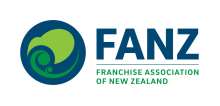
Page 12
Answer to Question 1E
If you run a business, what steps does your business take to identify and mitigate the risk of
exploitation occurring in your supply chain?
50.
Not applicable to FANZ. Due to the limited time available for submissions, we have also been
unable to survey our members as to what they do to encourage compliance throughout supply
chains. However we do note that not all businesses (including not all franchise systems) have
the luxury of being able to easily change suppliers or accept increased wholesale pricing, in which
event their ability to exert leverage over the supply chain and demand compliance, is very limited.
Although many large companies do now audit their supply chains and ensure compliance, and
that is to be welcomed, there are relatively few in the privileged position of being realistical y able
to do that to any great degree. Franchisors arguably have even less freedom than others, as
they need to also consider the expectations and needs of their franchisee network. So for
example, a franchisor may be inclined towards a more expensive supplier with better labour
practices, but accepting increased costs may be contrary to the wishes of the franchisee network
a
possibly contributing to franchisee breaches of employment law).
Answer to Question 1F
Do you have any other comments, suggestions or information on this issue?
Further context
51.
A brief explanation of franchising may help give further context to these issues.
52.
Franchising, or business format franchising as it is also called, is a method of doing business in
which a business methodology (or system) is developed by a franchisor. The franchisor then
grants individual franchisees the right to use that methodology, including relevant intellectual
property control ed by the franchisor, for the purposes of operating a franchised business for that
franchise system.
53.
Franchisees are general y granted the right to use the franchise system in a particular
geographical territory and for a period of time. Franchisees are free to operate their franchised
businesses as they see fit but must comply with the business format and methodologies that are
laid down by the franchisor in order to achieve consistency across areas of the business
considered important by the franchisor.
54.
Franchisees pay ongoing fees to the franchisor, and the franchisor has an ongoing obligation to
update and develop its system.
55.
There is no such thing as one generic franchising model that is capable of precise definition.
Each franchise system has a unique business structure, upon which the entire business is built.
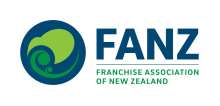
Page 13
Therefore the extent to which a franchisor mandates business procedures and systems, and the
considerably between systems. However, al franchise systems are built on the premise that they
are separate businesses run by different owners franchising (for franchisees) is about being in
your own business but not on your own.
56.
In some franchises, franchisors wil wield a considerable degree of actual power and control over
-to-day operations. Conversely, in other franchises, franchisors wield very little
power and control over the day-to-day operations of the franchisees. Whilst it is usual to see a
clause in the franchise agreement that requires franchisees to comply with all relevant New
Zealand employment laws, the franchisor wil typically have limited practical ability to ascertain
whether in fact there has been a breach of any employment standards (even in a relatively high-
control system).
57.
In some franchises, the franchisor may not even have any particular business systems or even
cooperatives, buying or group marketing groups and branded product distribution agreements.
58.
Thus,
capable of blanket regulation, there are in fact numerous different forms of franchising and
franchise models. In part, this reflects the fact that franchising operates across many different
industry sectors, such as retail, food, convenience, motor vehicle, home services, real estate,
transport, financial services and so on. Franchising is a methodology of doing business but it is
not a homogenous industry sector in and of itself.
59.
Franchising brings numerous benefits to New Zealand, not just in its monetary contribution to
GDP as we have explained above, but also in social and community benefits associated with
empowering and enabling average New Zealanders to own their own business. The benefits to
franchisees who purchase a franchise include the ability to operate a business without having to
invest as much time, money and risk in setting up that business. The business methodology is
provided to them by way of the operations manuals and training by the franchisor, in return for
which they pay franchise and training fees. Franchisees also receive ongoing support and
guidance of their franchisor, although the breadth and extent of such support wil vary by franchise
network. The benefits to franchisors include the ability to grow their brand and the franchise
network, take advantage of bulk purchasing power and compete more effectively and more
broadly than they could alone. Franchising has enabled the growth of many New Zealand brands,
some of which have subsequently exported overseas.
60.
In the context of Annexure D, we think it is important to remember that New Zealand franchisors
and New Zealand master franchisees of Australian and other international franchise systems
are small businesses. The scenario in Annexure D of the consultation paper is not reflective of a
typical New Zealand franchise system.
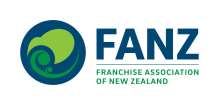
Page 14
Significant transitional period required
61.
We believe that if the Australian law is introduced, franchise agreements wil need to be
significantly modified to give franchisors far more detailed powers of investigation, such as the
as well as being able to have confidential access to staff of the franchisee. We suggest that the
process of modifying franchise agreements would require a significant delay or transitional period
before any legislation comes into effect. That is because franchise agreements cannot be
changed without the approval of the franchisee. As this is a significant contractual power, it would
not be appropriate to include it in an operations manual and so the consent and agreement of
franchisees would be required. As such, the appropriate time to amend the agreement wil be on
expiry. Most franchise agreements are of the terms of around six years although some extend to
20 years.
More should be made of existing regulatory tools
62.
We consider that the ability to sheet home liability to accessorial parties under s142W and s135
of the Employment Relations Act 2000 provides an adequate liability pathway to ensure that
orders can be obtained against persons who are either turning a blind eye or knowingly
col aborating with breaches of employment standards. Where it is perceived that the existing
provisions are inadequate, we suggest the existing law could be amended to provide an expanded
reasonably to h
Even a change such as this would require considerable further thought and some industry
guidance to help reduce the compliance burden associated with legislative uncertainty.
63.
In addition, increasing the fines and penalties under the existing legislation would provide a
stronger deterrent to non-compliance.
64.
FANZ also supports increased funding for the enforcement arm of the regulator, since our view
is that this is the entity best able to investigate and deal with al eged breaches of the law, in a
way that is most likely to protect both vulnerable employees and the legitimate interests of others
in the franchise network (who are themselves also employers).
Suggestions to reduce legal uncertainty and regulatory risk
65.
We believe it is a significant deficiency and source of frustration for franchisees in the Australian
a cont
It is the legal uncertainty around what that
means in practice, that primarily gives rise to the excessive compliance costs that detract from
66.
We expect that lawmakers considering introducing such a significant change to the law must
, and
take account of the different relevant franchise system situations (e.g., age, size, business
complexity etc). If that is the case, then lawmakers should be able to and should provide
comprehensive guidance to assist franchisors with compliance while also helping define the limits
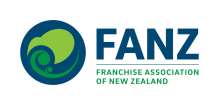
Page 15
of what is required, so as to reduce legislative uncertainty and the associated compliance costs.
We note the ACCC in Australia currently provides a similar resource. Such material would need
to be careful y constructed, given the enormous range and variety of franchise systems.
67.
Of course the exact nature of what:
(a)
can reasonably be expected of franchisors (or other entities having sufficient control over
an employer) so as to avoid the detrimental consequences described above; and
(b)
vulnerable workers
would require much careful and col aborative consideration by those having knowledge of both
franchising and employment law compliance. That is something we could assist with.
68.
Building on the above suggestion, we suggest that a franchisor who discovers or ought
reasonably to suspect that a franchisee is breaching employment law, should be required to report
that franchisee to the Labour Inspectorate and should (if that is done) have no further liability in
a breach must require no more than the practical and limited steps clearly defined in Ministry
guidelines discussed at paragraph 66.
Problematic regulatory definitions
69.
If there was a reason to single out franchises or franchisors in any regulation, then the legislation
ldwide, and even in Australia statutory
definitions vary. We raise this issue simply to il ustrate the difficulties that can arise and would
need to be overcome if any regulation were to refer specifical y to franchises.
The significance of FANZ and Franchising
70.
FANZ is the peak body representing the franchising community at government and other industry
forums. FANZ is also a member and active participant of the Asia Pacific Franchise
Confederation and the World Franchise Council.
71.
Founded in 1996, FANZ was established to bring members of the franchise community together
to set standards, promote good practice in franchising, assist franchisors to share information and
experiences and generally encourage the growth of franchising in New Zealand.
72.
FANZ has over 140 franchisor members, covering a substantial percentage of active franchise
systems in New Zealand. FANZ's total members include franchisors, franchisees and
approximately 70 affiliate members such as trading banks, law firms, accounting firms, business
consulting firms and specialist franchise consulting firms. Members of FANZ are committed to
observe the best practice in franchising through adherence to a Code of Practice, Code of Ethics
and the Rules of the Association.
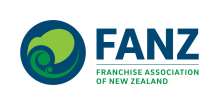
Page 16
73.
Franchising makes a significant and growing contribution to the New Zealand economy. A 2017
Survey of New Zealand franchising, conducted by Massey University and Griffith University in
conjunction with FANZ, found that:
(a)
There were 631 business format franchise systems in operation in New Zealand;
(b)
Those franchise systems account for 37,000 operating units, the majority operated by
franchisees;
(c)
Business format franchise systems are a major employer, providing employment to more
than 124,200 workers; and
(d)
Business format franchise system sector turnover was estimated $27.6 bil ion, being
equivalent to 11% of New Zealand
additional turnover provided by both fuel retail and vehicle sale sector franchise systems.
Thank you
74.
Thank you for the opportunity to comment on these proposals. We are very wil ing to work with
Government and share information that may assist the drafters of any proposed legislation to
achieve a balance that helps ensure employment law breaches are detected and dealt with by
the appropriate authority while protecting the contribution franchising can make to the economy
and to individual New Zealanders. We would like to meet with the Ministry to discuss these issues
further.






















